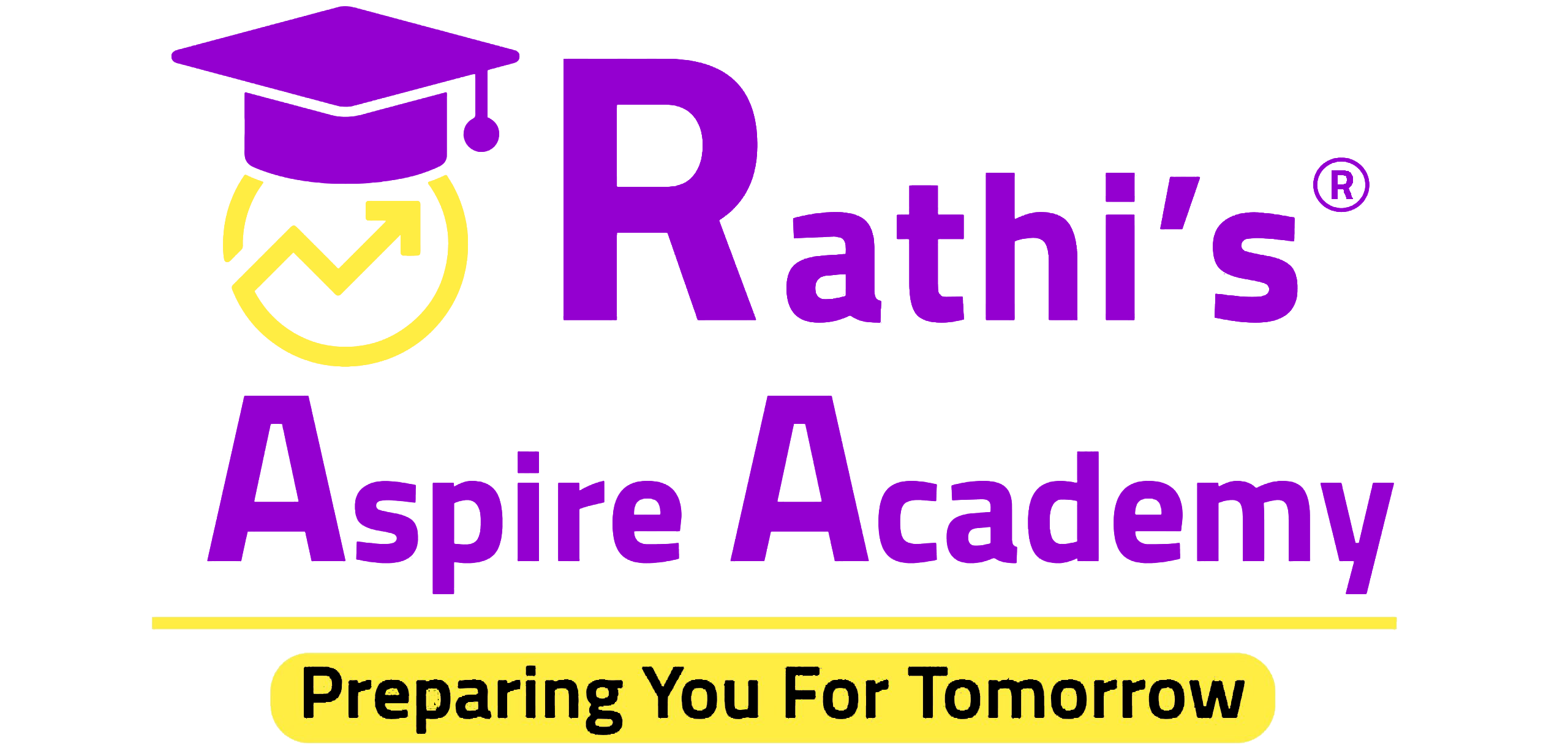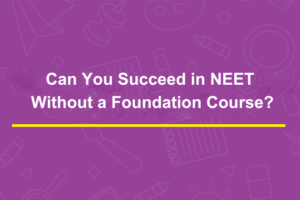How to Decide If IIT JEE Foundation Is Right for You

Are you wondering whether should you get your child enrolled in a foundation course? Why a foundation course is important for your child after all? Such questions often tense parents. The IIT JEE foundation courses are often marketed as a must-have for cracking the prestigious IIT JEE exams. However, before making a decision, it’s essential to weigh the pros and cons and think critically about whether a foundation course is truly necessary.
Here are some pointers to help you decide if JEE foundation course is apt for you or not:
- Are you self-disciplined and motivated to study without constant supervision?
- Are you consistently scoring above 90% in school exams?
- Do you strongly grasp core concepts in Physics, Chemistry, Maths, and Biology?
- Can you effectively manage your time and balance multiple classes and activities?
On a scale of 5 for each question, if your total score is 16 or higher then you can consider the foundation course otherwise it is better to focus on school academics.
(Disclaimer: The above model is based on our experience counseling thousands of students over the past 5+ years. We believe that a foundation course isn’t one size fits all. We recommend consulting your child’s school teacher, a career counsellor, or RAA itself before making a final decision.)
In this article, we’ll examine why the IIT JEE foundation might not suit every student and discuss alternative strategies that can be just as effective—if not more—without the financial and psychological burden of an early start.
1. The Pressure of Starting Early
Starting a foundation course as early as 7th grade adds immense pressure. A child’s formative years should focus on holistic development—learning new skills, engaging in hobbies, and nurturing social relationships—not solely on preparing for an exam years down the road. When students are put into IIT-JEE foundation classes, their time and mental energy are channeled almost exclusively toward exam preparation. This narrowed focus can diminish creativity, suppress curiosity, and rob them of a balanced upbringing.
Alternative: Rather than taking a foundation course, concentrate on developing a passion for learning and a solid conceptual grasp in the classroom. When students reach better grades, they have more time to study for competitive tests.
2. Lost Flexibility and Exploration
When students are locked into a foundation course, they often lose the freedom to explore other academic or non-academic interests. Adolescence is a critical period for exploring different career paths, developing a wide variety of interests, and discovering passions beyond academics. A foundation course can restrict this flexibility, forcing students into a predefined path at a time when they should be experimenting and learning what truly excites them. Foundation courses can create tunnel vision, making students feel locked into IIT JEE as their only viable goal.
Alternative: In high school, encourage pupils to maintain an open-ended approach to their education. Encourage them to make their own notes. They can study other courses and build a comprehensive skill set that will serve them well in the long term, rather than enrolling too early in an IIT JEE foundation.
3. Questionable Return on Investment
Even while foundation courses typically come with costly costs, they promise to provide students an advantage by getting them started on their preparation for the IIT JEE at an earlier stage. On the other hand, a significant number of students who do not enroll in IIT-JEE foundation classes successfully pass the IIT JEE examination with flying colours by relying only on self-study, school preparation, and focused tutoring in 11th – 12th std. Although foundation courses may emphasize strategies for solving issues in a short amount of time, but those can be learned in later years.
Alternative: Focus on school academic coaching and enrolling in tuitions specifically for school academics. This can build a robust conceptual foundation that will serve students well when they eventually transition to targeted IIT JEE coaching in higher grades.Through good study habits, students crack exams like NEET and JEE even without a foundation. Live examples are Durva Daga (JEE Mains AIR 292 and JEE Advanced AIR 2630) and Neeran Bhattad (NEET 99.89%tile, JEE 98.87%tile, IISER 484, HSC marks out of 100 – Maths: 100, Bio: 100, Phy: 98, Chem: 98). Both of them didn’t opt for any foundation course, they focused on conceptual understanding of 8th – 10th school syllabus.
4. Peer Pressure and Unrealistic Expectations
Many students participate in foundation courses as a result of parental or school pressure, or because their friends are doing so. Students may be forced into classes for which they are not psychologically equipped by this herd mentality. Many times, students enrol in the IIT JEE foundation courses out of social pressure even when they have no interest in engineering. Because of this, students frequently feel stuck in a classroom setting that isn’t conducive to their hobbies or skills. This choice may have negative long-term effects, such as tension, disappointment, and even failure.
Alternative: Encourage students to stay positive. Parents should step back and critically evaluate whether the foundation course is being considered for the right reasons. Individual aptitude, interest, and long-term aspirations should guide these decisions—not the actions of others.
5. Potential for Burnout
Students may have years of worry, anxiety, and pressure when they begin studying years before the exam. The amount of time required for preparation might wear one out mentally and physically. Students may do poorly by the time they get to their crucial eleventh and twelfth grades due to exhaustion from years of foundational effort. Disengagement is another danger associated with burnout. Many students who have been in foundation courses for years may feel too tired to give it their all when the real IIT JEE preparation starts, having previously gone through years of intense study sessions.
Alternative: Allow students to enjoy their early years of schooling without the burden of IIT JEE hanging over their heads. Intensive preparation is best reserved for the final two years of school, where the material is fresh, relevant, and directly aligned with the exam syllabus.
6. Ineffectiveness of Long-Term Planning
The concept of starting IIT JEE preparation five to six years in advance is inherently flawed for most students. Long-term planning may seem appealing, but in reality, students’ learning capabilities, maturity, and interests evolve. The approach that works best in 8th grade is unlikely to be effective by the time the student reaches 12th grade when the actual pressure and expectations of IIT JEE begin.
Alternative: Encourage pupils to concentrate on their studies rather than spending money on long-term coaching, since this will inevitably provide the foundation for competitive examinations down the road. When the time comes, a student who has a strong academic foundation in topics like physics and mathematics would be more capable of handling IIT JEE tutoring.
Possible Benefits of IIT-JEE Foundation
The benefits of IIT-JEE foundation courses offer several advantages for students aiming for success in competitive exams. They provide early exposure to the IIT JEE syllabus, allowing students to develop a strong conceptual foundation in core subjects like Mathematics, Physics, and Chemistry. These courses focus on building problem-solving skills, which are essential for tackling challenging questions. With a structured learning path, students learn time management, gradually easing into exam preparation without last-minute stress. Regular assessments and guidance from expert faculty help track progress and improve weak areas.
RAA — Your Ultimate JEE Guide
Searching for ‘IIT-JEE foundation classes near me’ over the internet? Worry not, RAA is always present at your rescue!! Rathi’s Aspire Academy (RAA) in Pune is widely regarded as one of the most reputable educational institutions for coaching students for the Joint Entrance Exam (JEE), National Eligibility cum Entrance Test (NEET) and other competitive examinations including MHT-CET. To enable students to concentrate completely on their academic pursuits, RAA offers a wide variety of support to its students.
Rathi’s Aspire Academy provides children with academic programs that aid them in preparation for a variety of examinations. These examinations include the PCMB (11th and 12th grade), the Foundation (Class VIII to X), and School academics (Class VIII to X) for the CBSE, ICSE, and HSC boards. Our Foundation class programs are meticulously designed to maximize benefits while minimizing potential drawbacks.
Conclusion
So, is a foundation course necessary for IIT JEE? Well, academic achievement and personal progress are both guaranteed by well-planned, disciplined study habits. Although the IIT-JEE Foundation classes are a good place to start, they won’t work for everyone. Major worries include the possibility of burnout, the early start of stress, and the dubious return on investment. Instead of rushing into a foundation course work on foundational subjects (Maths & Science) of their current year, students should aim for a balanced education, have fun during their time in school, and study hard for exams when the time is appropriate.







